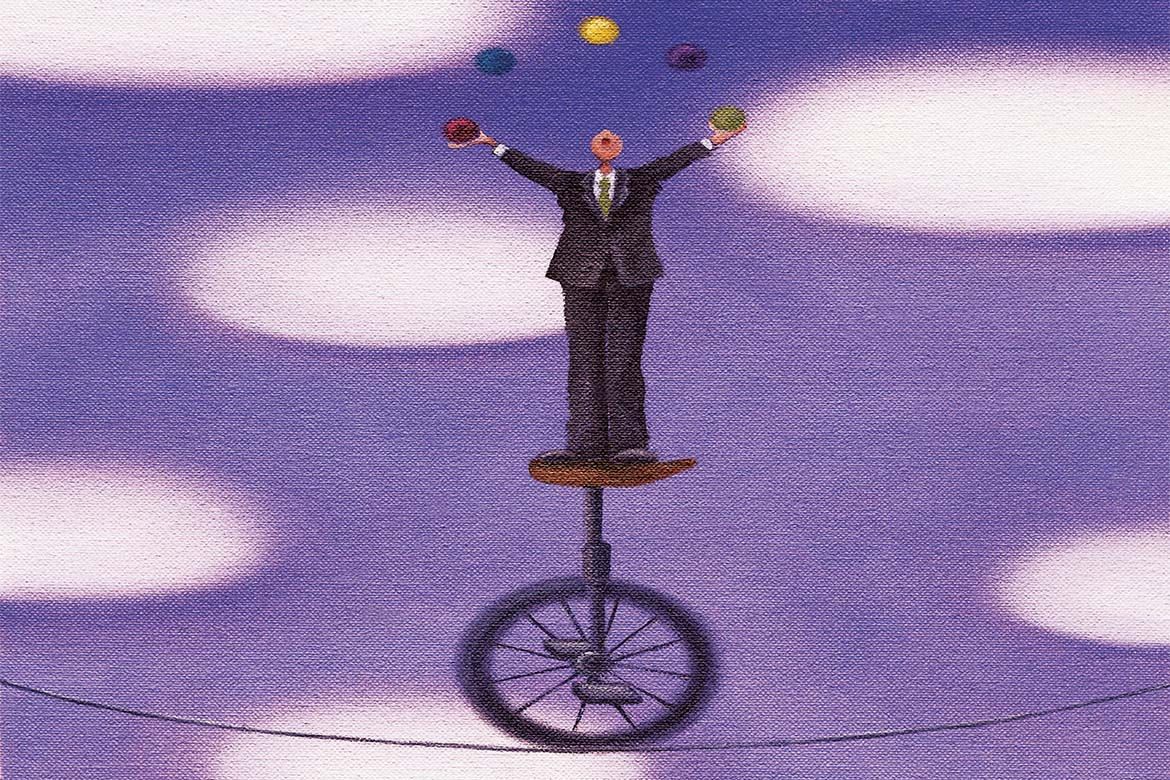The balance of security
It is a sad fact that terrorism is a part of our way of life. There will always be someone out there, waiting in the shadows, ready to create tragedy in the lives of normal everyday people for whatever reasons they choose to provide.
The police and intelligence services have a mountain to climb in the protection of society from such people, and there can be little doubt that in a climate of austerity they are more reliant than ever on the private security industry for support. The challenge arises when the private security industry is serving two masters with what, on the surface, are conflicting needs. Clients are simply no longer willing to accept traditional target hardening methods that disrupt their operation, harm their organisational culture and obstruct their customers. Many clients now require a more customer experience oriented approach and would like security to be largely invisible at their sites. How can this balance be met?
A different concept of security
To appreciate this, it’s worth discussing a different concept of security, which consists of three distinct elements. First we have the traditional ‘fact’ of security. This could also be considered a ‘hard’ service that is highly visible and utilises the very obvious target hardening approaches to deliver environmental cues that clients are so averse to today. Those aligning with the ‘fact’ of security may be of the ‘old school’ approach and consider that security is like a light switch – it is either on or off and you are either secure or you aren’t. One specific challenge with this is that ‘hard’ security can often be brittle in that it fails to consider the emotional human element. The more barbed wire, guns and snarling dogs that are plainly visible on a site, the less safe many people will feel, and this leads us to the second element – the ‘feeling’ of security.
The ‘feeling’ of security
Indeed, the ‘feeling’ of security is a key driver in the commercial development of the private security sector and one that has been largely ignored, and this can be seen in the changing physicality of corporate security officers today. The days of muscle-bound men in combat clothing as an icon of the sector are long-since gone, in favour of smartly dressed, more discreet personnel with excellent communication skills and high levels of client empathy. There is a clear shift towards concierge security and the emphasis is on the experience that visitors have.
There is merit in this. While people may be inclined to forget facts, they are much more likely to remember their feelings. If they enter a client site and feel welcome, this is more likely to link to a feeling of being secure and this is an important factor that will influence their behaviour. Indeed, the ‘feeling’ of security will influence the ‘fact’ in some cases.
The ‘illusion’ of security
Finally there is the ‘illusion’ of security, what is sometimes referred to as ‘security theatre’. This sits somewhere on the spectrum between the ‘fact’ and the ‘feeling’ of security. It is fair to say that we have all experienced delays on our travels caused by security countermeasures that we felt were ill-conceived or poorly executed. Their implementation is not necessarily to directly support the ‘fact’ of security, but rather to create the impression of it for anyone watching. For terrorists and other criminals, the only way to distinguish between a sloppy bag search and an effective one is to risk capture and it is likely to be preferable to simply choose another target.
What is important is that we accept and recognise when we are engaging in the illusion of security and do not fall for our own sleight of hand.
Positive customer experiences
In the face of a viable and persistent terrorist threat, therefore, how can the sector respond given these apparently incompatible security positions? The answer is a simple one: the ‘feeling’ of security is driven by the pursuit of positive customer experiences. The baseline for customer service excellence is paying attention to our customers. Is this any different from security?
If security practitioners are truly paying attention to their customers, they should be able to identify potential threat behaviours and change their security posture accordingly. Security in this respect is not ‘hard’ but flexible. Instead of being a ‘light switch’ we have instead developed security on a dimmer switch. Most of the time security will be invisible, actively engaging in the client vision for outstanding customer service. To most people, this active engagement will be appreciated. Those who intend harm to others, however, will see this active engagement as a threat.
Attentive security staff are, after all, the best chance of disrupting attack preparations. This is the very essence of Capable Guardian and re-applies the theory in a new context for application in the sector today. Great customer service is great security.
Richard Diston
Director of Astute

